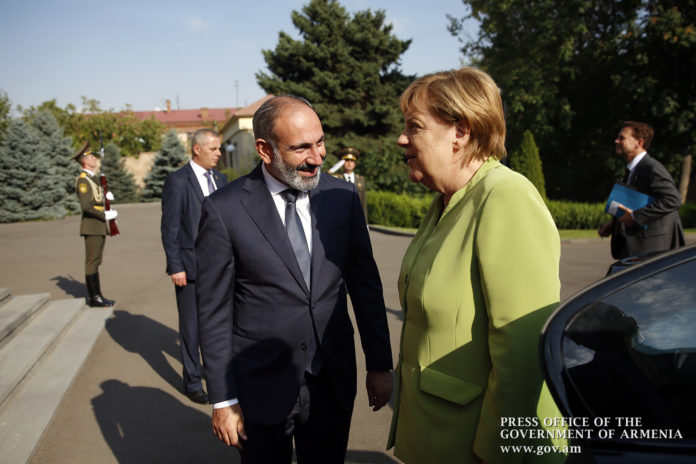BERLIN — German Chancellor Angela Merkel’s recent trip to the South Caucasus received careful attention in Germany, not only in political circles and the major press, but also in the small but active Armenian community here. On September 5, Dr. Raffi Kantian, chairman of the Board of the Deutsch-Armenische Gesellschaft (German-Armenian Society), issued a press release on behalf of his organization.
Titled, “German Chancellor Merkel in Armenian: An important step and the right one for German-Armenian relations,” it read as follows:
Chancellor Merkel visited Armenia on August 24 and 25. We in the German-Armenian Society welcome her decision to visit the genocide memorial immediately on arrival, a decision that bears a special symbolic stamp. Although she avoided the word “genocide,” she made clear that that is what she meant:
“I planned this commemoration in the spirit expressed also by the Resolution of the German Bundestag (Parliament) in June 2016. I believe that with it, an important step was taken for the development of the culture of remembrance and also that a political classification was assigned, though explicitly not a legal one.”
The Bundestag Resolution from June 2, 2016, “Remembering and Commemorating the Genocide against Armenians and other Christian Minorities in 1915 and 1916,” contains the important ascertainment:
“Today the task for education in Germany, in schools, universities and political formations is to take up study of the expulsion and extermination of the Armenians, including it in curricula and textbooks, as part of the study of the history of 20th century ethnic conflicts, to transmit this to future generations. In this respect the Federal States are to play an important role.”








